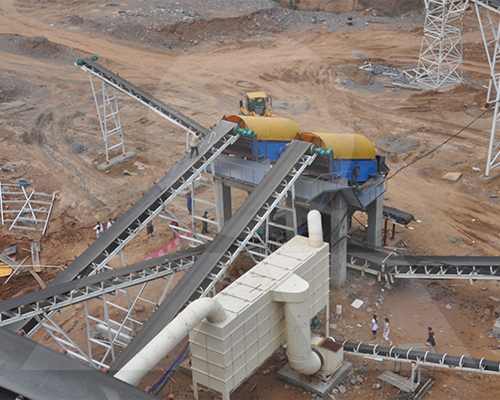Common Issues with Vibrating Screen Bodies and Their Solutions
Vibrating screens are essential equipment in many industries, including mining, construction, and mineral processing. They are designed to separate materials by size and remove impurities from a mixture. However, despite their robust design, vibrating screens can encounter various issues that affect their performance and longevity. This article discusses common problems associated with vibrating screen bodies and offers practical solutions.
1. Cracking of the Screen Body
One of the most significant issues that can arise with vibrating screens is the cracking of the screen body. This is often due to prolonged exposure to high-stress conditions or poor quality of the screen material. The cracks usually develop in areas with high stress concentration, such as the joints and corners of the screen frame.
Solution: To prevent cracking, it’s essential to regularly inspect the screen body for any signs of stress or wear. If cracks are detected, they should be repaired immediately using appropriate welding techniques. Additionally, reinforcing the frame at vulnerable points can help distribute the stress more evenly, reducing the likelihood of cracks forming. Choosing screens made from high-quality, durable materials can also extend the lifespan of the equipment.
2. Loose Bolts and Fasteners
Another common issue is the loosening of bolts and fasteners, which can cause the screen body to vibrate improperly. This problem often arises due to the constant vibrations and movements that the screen endures during operation.
Solution: Regular maintenance checks should include tightening all bolts and fasteners to ensure they remain secure. Using lock nuts or applying thread-locking compounds can also help prevent bolts from loosening. For critical connections, consider using high-tensile bolts that are more resistant to vibration-induced loosening.
3. Screen Blinding and Blockage
Screen blinding occurs when the screen’s apertures become blocked by particles, leading to reduced screening efficiency. This is particularly problematic when working with wet or sticky materials, which can adhere to the screen surface.
Solution: To minimize screen blinding, it’s crucial to ensure the screen is kept clean and free from material buildup. Regular cleaning and the use of anti-blinding devices, such as ball decks or brush systems, can help maintain the screen’s performance. Additionally, selecting a screen with an appropriate mesh size for the material being processed can reduce the likelihood of blockage.
4. Inadequate Vibration
Insufficient vibration can lead to poor screening performance, as the material may not be adequately separated. This issue can arise from a variety of factors, including worn-out vibration motors, imbalanced weights, or incorrect tensioning of the screen.
Solution: Regularly inspect the vibration motors and replace them if they show signs of wear. Ensure that the weights are balanced correctly and that the screen is tensioned properly to maintain optimal vibration levels. It’s also important to verify that the screen is installed correctly and that there are no obstructions that could impede its movement.
5. Excessive Noise
Excessive noise during operation is another issue that can be both annoying and indicative of underlying problems with the vibrating screen. This noise is often caused by loose components, worn-out bearings, or inadequate lubrication.
Solution: Identify and tighten any loose components, and replace worn-out bearings as necessary. Ensure that all moving parts are adequately lubricated to reduce friction and noise. Additionally, installing rubber pads or dampers can help absorb some of the vibrations, further reducing noise levels.
Conclusion
Vibrating screens are critical to many industrial processes, and maintaining them in good working condition is essential for efficient operation. By addressing common issues such as cracking, loose bolts, screen blinding, inadequate vibration, and excessive noise, operators can ensure that their screens perform optimally and have a longer service life. Regular maintenance and prompt repairs are key to avoiding costly downtime and ensuring the continued success of your operations.
- > Optimization of Secondary Cone Crushing Process in Peruvian Copper Mines
- > PE Jaw Crusher for Laterite Nickel Ore Crushing in Indonesia
- > Impact Crusher Working Principle: A Simple Guide to How It Works
- > Comprehensive Guide to Installation and Commissioning of Mobile Crushing Stations
- > Efficient Spiral Sand Washer for Gravel, Rock, and Ore
- > The Role of Concrete Impact Crushers in Cement Production Lines
- > The Key Role of Jaw Crushers in Indonesia’s Limestone Crushing Lines
- > Mobile Crusher Plant Advantages in Frequent Multi-Site Relocation
Hot Product


Online




Message

